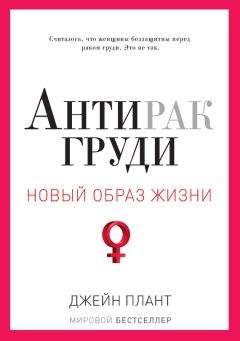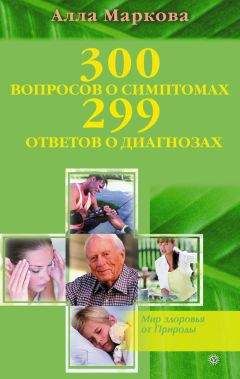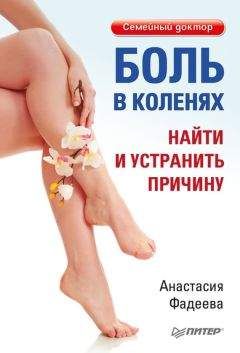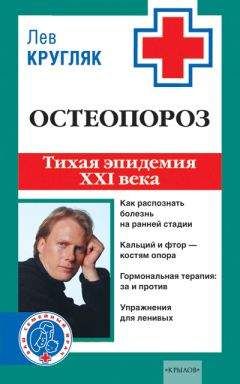Джейн Плант - Ваша жизнь в ваших руках. Как понять, победить и предотвратить рак груди и яичников
46. http://www.foodstandards.gov.uk/mi3ltimedia/webpage/ acrylamide_study_faq
47. www.cancerresearchuk.org
48. White, Craig A. and Macleod, Una, 2002. ABC of psychological medicine: Cancer. BMJ, 325, 377–380.
49. Walsh, Kiri, King, Michael, Jones, Louise, Tookman, Adrian and Blizzard, Robert, 2002. Spiritual beliefs may affect outcome of bereavement: prospective study. BMJ, 324, 1551–1554.
50. White, Craig A. and Macleod, Una, 2002. ABC of psychological medicine: Cancer. BMJ, 325, 377–380.
51. White, Craig A. and Macleod, Una, 2002. ABC of psychological medicine: Cancer. BMJ, 325, 377–380.
52. White, Craig A. and Macleod, Una, 2002. ABC of psychological medicine: Cancer. BMJ, 325, 377–380.
53. Petticrew, Mark, Bell, Ruth and Hunter, Duncan, 2002. Influence of psychological coping on survival and recurrence in people with cancer: systematic review. BMJ, 325, 1066–1069.
54. Graham, J, Ramirez, A, Love, S, Richards, M and Burgess, C.
2002. Stressful life experiences and risk of relapse of breast cancer: observational cohort study. BMJ, 324, 1420–1422.
55. Beales, D., 2004. Beyond mind-body dualism: implications for patient car t. Journal of Holistic Healthcare, 1 (3).
56. Ernst, Edzard (ed.), 2001. The desktop guide to complementary and alternative medicine. Mosby.
57. King, Michael and five others, 2002. Effectiveness of teaching general practitioners skills in brief cognitive behaviour therapy to treat patients with depression: randomised controlled trial. BMJ, 324, 947.
58. http://www.nccn.org/patient_gls/_english/_prostate/
59. European Journal of Cancer, 2003, 39, 1562–1567; quoted in BMJ, 327, 402.
60. Plant, Jane and Stephenson, Janet, in preparation. Breakthrough Anxiety and Depression.
61. Bartram, Thomas, 1998. Bartram’s Encyclopedia of Herbal Medicine. London: Robinson.
62. Miller, G H, 1996. Can Active or Passive Smoking Increase Breast Cancer Mortality? Cancer Detect Prevent 20 (5).
63. Mayor, Susan. 2002. Pregnancy and early smoking increases breast cancer risk. BMJ, 325, 12 October 2002, 793.
64. Cancer Epidemiology, Biomarkers and Prevention, July 2003; http://www.nlm.nih.gov/medlineplus/news/fullstory_13352. html
65. Plant, Jane and Tidey, Gill, 2003. Understanding, preventing and overcoming osteoporosis. Virgin Books.
66. Goodman-Gruen, D. and Barrett-Connor, E., 1997. Epidemiology of insulin-like growth factor-I in elderly men and women. The Rancho Bernardo Study. American Journal of Epidemiology, 145, 970–976; Kaklamani, VG., Linos, A., Kaklamani E., Markaki, I. and Mantzoros, C., 1999. Age, sex, and smoking are predictors of circulating insulin-like growth factor 1 and insulin-like growth factor-binding protein 3. Journal of Clinical Oncology, 17. 813–817.
67. Colborn, Т., Dumanoski, D. and Myers, J.P., 1996. Our Stolen Futures, Dutton, Penguin Books, USA.
68. The Environment Agency, March 2000. Endocrine-disrupting substances in the environment: The Environment Agency's Strategy, The Environment Agency, Bristol, UK.
69. Miller, WR. and Sharpe, R.M., 1998. Environmental oestro-gens and human reproductive cancers. Endocrine-Related Cancer, S, 69–96; Plant, J.A. and Davis, D.L., 2003. Breast and prostate cancer: sources and pathways of endocrine-disrupting chemicals (EDCs). In Geology and Health. Skinner, H.C.W and Berger, A.R. (editors). OUP. 95–99.
70. McKinlay, R. and others, in press. Endocrine disrupting pesticides: implications for risk assessment.
71. Toppari, J., Larsen, J.C., Christiansen, P., Giwercman, A., Grandjean, P., Guillette, L-J., Jr, Jegou, B., Jensen, Т.К., Jouan-net, P., Keiding, N., Leffers, H., McLachlan, J.A., Meyer, O., Muller, J., Rajpert-De Meyts, E., Scheike, Т., Sharpe, R.M., Sumpter, J.S., and Skakkebaek, N.E., 1996. Male reproductive health and environmental xenoestrogens. Environmental Health Perspectives, 104, 741–803.
72. www.cancersupportinternational.com
73. The Royal Commission on Environmental Pollution, 2003. Chemicals in products: safeguarding the environment and human health. Report 24; Annual Reports of the (UK) Chemical Stakeholders Forum, 2002, and The Advisory Committee on Hazardous Substances, 2002; Miller, WR. And Sharpe, P.M., 1998. Environmental oestrogens and human reproductive cancers. Endocrine-Related Cancer, 5, 69–96.
74. Charlier, C.C.J., 2002. Determination of organochlorine pesticide residues in the blood of healthy individuals. Clinical Chemistry and Laboratory Medicine, 44, 361–364; WWF, 2003. UK national biomonitoring survey. WWF.
75. MDuffie, H.H., 2005. Host factors and genetic susceptibility: a paradigm of the conundrum of pesticide exposure and cancer associations. Reviews on Environmental Health. 20 (2), 77-101.
76. Mathur, V, 2002. Breast cancer incidence and exposure to pesticides among women originating from Jaipur. Environment International, 28 (5), 331–336; Starek, A., 2003. Estrogen and organochlorine xenoestrogens and breast cancer risk. International Journal of Occupational Medicine and Environmental Health. 16 (2), 113–124.
77. Frigo, D.E., 2004. Mechanism of AP-1-mediated gene expression by select organochlorines through the p38 МАРК pathway. Carcinogenesis, 25 (Feb), 249–261; Lewis, J.S. and others, 2005. Differential effects of 16-hydroxyestrone and 2-meth-oxyestradiol on cyclin D1 involving the transcription factor ATF-2 in MCF-7 breast cancer cells. Journal of Molecular Endocrinology, 34, 91-105; Tessier, D.D., 2001. Increased ErbB-2 tyrosine kinase activity, МАРК phosporylation, and cell proliferation in the prostate cancer cell line LNCaP following treatment by select pesticides. Toxicological Sciences. 60 (1), 38–43.
78. Swan S.H. and others, 2005. Decrease in anogenital distance among male infants with prenatal phthalate exposure. Environmental Health Perspectives, 113, (8).
79. Kawauchi, H., 2002. Identification of growth hormone in the sea lamprey, an extant representative of a group of the most ancient vertebrates. Endocrinology, 143 (12), 4916–4921; Park, J.I., 2005. Conservation of the heterodimeric glycoprotein hormone subunit family proteins and the LGR signalling system from nematodes to humans. Endocrine Journal, 26 (3), 267–276.
80. Environmental Endocrine Disruptors: A Handbook of Property Data, John Wiley and Sons.
81. Edwards, T.T., 2006. Reproductive dysgenesis in wildlife: a comparative view. International Journal of Andrology, 29 (1), 109–121; Guillette, L.L., 1999. Plasma steroid concentrations and male phallus size in juvenile alligators from seven Florida lakes. General and Comparative Endocrinology, 116(3), 356–372.
82. Colborn, Т., Dumanoski, D. and Myers, J.P., 1996. Our Stolen Futures, Dutton, Penguin Books, USA.
83. Webb, S.F., 2000. Risk assessment approaches for Pharmaceuticals. In: International Seminar: Pharmaceuticals in the Environment, Technological Institute, Section on Environmental Technology, Brussels, 2000.
84. Kolpin, D.A., Furlong, E.T., Meyer, M.T., Thurman, E.M., Zaugg, S.D., Barber, L.B. and Buxton, H.T.; 2002. Pharmaceuticals, Hormones, and Other Organic Wastewater Contaminants in US Streams, 1999–2000: A National Reconnaissance. Environmental Science & Technology, 36, 1202–1211.
85. McQuillan, D., Mullany, J., Parker, J., Mills, D., Sherrell, K. and Chapman, Т.Н., 2000. Drug Residues in Ambient Water: Initial Surveillance in New Mexico, USA. December 2000 Progress Report, http://www.nmenv.state.nm.us/gwb/drugs. html; Morelli, J., 2000. Are Our Medicines Tainting the Environment?
http://webmd.lycos.com/content/article/25/1728_58159?
86. McQuillan, D., Mullany, J., Parker, J., Mills, D., Sherrell, K. and Chapman, Т.Н., 2000. Drug Residues in Ambient Water: Initial Surveillance in New Mexico, USA. December 2000 Progress Report, http://www.nmenv.state.nm.us/gwb/drugs. html
87. The Royal Commission on Environmental Pollution, 2003. Chemicals in products: safeguarding the environment and human health. Report 24.
88. Hamburger Umwelt Institute, 1997. Poor Design Practices – gaseous emissions form complex products.
89. Brown, S.K. and Cheng, M., 2000. Volatile Organic Compounds (VOCs) in New Car Interiors. Presented at the 35th International Clean Air & Environment Conference Sydney, 26–30 November 2000.
90. http://www.le.ac.uk/ieh
91. Clapp, R.W and others, 2005. Environmental and occupational causes of cancer. The Lowell Centre for Sustainable Production, University of Massachusetts Lowell.
92. The Globe and Mail, November 22, 2002, page A5. Data point to breast-cancer risk. By Martin Mittelstaedt.
93. Newby, JA. and Howard, C.V, 2006. Environmental influences in cancer aetiology. Journal of Nutritional and Environmental Medicine; 2006, 1-59.
94. Clapp, R.W and others, 2005. Environmental and occupational causes of cancer. The Lowell Centre for Sustainable Production, University of Massachusetts Lowell.
95. Birnbaum, L.S. and Fenton, S.E., 2003. Cancer and developmental exposure to endocrine disruptors. Environmental Health Perspectives, 11 (4), 389–395.
96. www.obgyn.nct/newsrx/womens_health-Colorectal_Cancer-20001214-7.asp
97. http://info.cancerresearchuk.org/healthyliving/dietand-healthycating/ theepicstudy
98. www.ucdmc.ucdavis.edu/ucdhs/health/a-z/06BreastCancer/ doc06lowerisk.html
99. Epidem. 1994, 23 (6), 1133–1136.
100. Spurgeon, D., 2006. Vitamin D is associated with a lower risk of cancer. BMJ, 332, 70.
101. Miller, WR. and Sharpe, R.M., 1998. Environmental oestro-gens and human reproductive cancers. Endocrine-Related Cancer, 5, 69–96.
102. http://cis.nci.nih.gov/fact/3_13.htm
103. Gottlieb, Scott. 2002. Study supports evidence on oral contraception and breast cancer. BMJ, 325, 6 July 2002, 8.
104. Writing Group for the Women’s Health Initiative Investigators. 2002. Risks and Benefits of Estrogen Plus Progestin in Healthy Postmenopausal Women. Journal of the American Medical Association, 288, № 3.
105. Collaborative Group on Hormonal Factors in Breast Cancer,
1997. Breast cancer and hormone replacement therapy. Lancet,ЪЬЪ, 1047–1059.
106. Schairer, C., Lubin, J., Troisi, R., and others, 2000. Menopausal estrogen and estrogen-progestin replacement therapy and breast cancer risk. JAMA, 283(4), 485–491.
107. www.nih.gov/news/pr/nov2002/nichd-29.htm
108. Ross, R.K., Paganini-Hill, A., Wan, P.C. and others, 2000. Effective hormone replacement therapy on breast cancer risk: estrogen versus estrogen plus progestin. J Natl Cancer Inst,
92, 328–332. Schairer, C., Lubin, J., Troisi, R. and others. 2000.
Menopausal estrogen and estrogen-progestin replacement therapy and breast cancer risk. JAMA, 283 (4), 485–491.
109. The Times. 15 December 2006.
110. Ernst, E (editor), 2001. The Desktop Guide to Complementary and Alternative Medicine: an evidence based approach. Mosby.
111. Lee, John R, 1999. Natural Progesterone. Second revised edition. Jon Carpenter.
112. Cowan, L.D., Gordis, L., Tonascia, J.A. and Jones, G.S., 1981. Breast cancer incidence in women with a history of progesterone deficiency. Am J Epidemiology, 114, 209–217.
113. Hrushesky, WJ.M., 1996. Breast cancer, timing of surgery, and the menstrual cycle: call for prospective trial. / Womens Health, 5, 555–566.
114. Mohr, P.E., Wang, D.Y., Gregory, WM., Richards, M.A. and Fentiman, I.S., 1996. Serum progesterone and prognosis in operable breast cancer. British J Cancer, 73, 1552–1555.
115. Butler, J., 2006. White lies. Vegetarian and Vegan Foundation.
116. Dibble, S.L. and others, 2002. Risk factors for ovarian cancer; lesbian and heterosexual women. Oncol Nursing Forum, 29 (1)? El-7.
117. Ives, A. and Semmens, J., 2007. Pregnancy after breast cancer: population based study. BMJ, 334, 194.
118. www.cancer.org/docroot/cri/content/cri_2_4_5x_what_hap-pens_after_treatment_5.asp?sitearea=cr
119. http://www.cancer.org/docroot/cri/content/cri_2_6x_can_ha-ving_an_abortion_cause_or_contribute_to_breast_cancer.asp
120. http://www. cancer.org/docroot/cri/content/cri_2_6x_can_ having_an_abortion_cause_or_contribute_to_breast_cancer.asp
121. www.cspinet.org/new/200206251.html
Дополнение к главе 7
1. Campbell, Т., Colin, Campbell, Thomas М. II, Robbins, John and Lyman Howard, 2006. The China Study: The Most Comprehensive Study of Nutrition Ever Conducted and the Startling Implications for Diet, Weight Loss and Long-term Health, Ben-bella Books.
2. Kannel Ж.В. and others, 1961. Factors of risk in the development of coronary heart disease – six year follow up experience. Anna Internal medi., SS.
3. Campbell, T. Colin, Campbell, Thomas М. II, Robbins, John and Lyman Howard, 2006. The China Study: The Most Comprehensive Study of Nutrition Ever Conducted and the Startling Implications for Diet3 Weight Loss and Long-term Health, Benbella Books.
4. Campbell, T.C. and Junshi, C., 1994. Diet and chronic degenerative disease perspectives from China. American Journal of Clinical Nutrition, 59 (Suppl.), 11 535-11 615.
5. Marwick, Charles, 2003. Food industry obfuscates healthy eating message, BMJ, 327, 121.
6. Campbell, T. Colin, Campbell, Thomas M. II, Robbins, John and Lyman Howard, 2006, The China Study: The Most Comprehensive Study of Nutrition Ever Conducted and the Startling Implications for Diet3 Weight Loss and Long-term Health, Benbella Books.
7. Schlosser, Eric, 2002. Fast Food Nation. Penguin Books.
8. Martin, Peter, 2002. Milk: Nectar or Poison? Sunday Times Magazine, 21 July 2002, 46–54.
9. Mercer, Chris, 2007. EU unveils milk shake-up plans, www. foodnavigator.com
10. http://www.cafod.org.uk
11. Butler, J., 2006. White lies. Vegetarian and Vegan Foundation.
12. Anon, 2003. UK supports exclusive breast feeding for six months. BMJ, 326, 1052.




